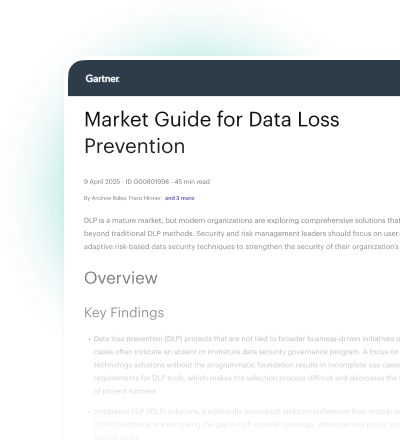India’s Digital Personal Data Protection (DPDP) Bill: Everything You Need to Know
0 분 읽기

Forcepoint
The digital landscape is evolving, and with it comes new regulations designed to protect personal data.
India's Digital Personal Data Protection (DPDP) Bill is one such legislation that has made waves in the world of data security. This bill applies to both online and offline processing of digital personal data in India, signaling a significant shift in how businesses handle data security.
Understanding the DPDP Bill
The DPDP Act mandates companies to obtain consent from individuals before processing their personal data. Individuals are also granted rights to access information about processing, seek correction and erasure of personal data, and file grievances. The legislation requires data fiduciaries to ensure accuracy and security of data, promptly report breaches and erase data when no longer necessary.
Under this act, personal data can be transferred outside India, barring restricted countries. But there are exemptions in place for prevention and investigation of offences and enforcement of legal rights. Compliance is monitored by the Data Protection Board of India, which can impose penalties up to Rs 200 crore for obligations related to children and Rs 250 crore for failure to prevent data breaches, according to the bill.
The Business Impact
For companies operating in the region, the DPDP Act necessitates a comprehensive reevaluation of their approach to data security.
With the increasing prevalence of cyber threats and the potential for significant financial penalties, non-compliance is not an option. However, the consequences of a data breach go beyond monetary fines. It can lead to a loss of trust and confidence from customers, which can be detrimental to the long-term success of any business.
On the flip side, businesses that prioritize and invest in robust data security measures not only mitigate the risk of breaches but also have the opportunity to strengthen customer relationships and enhance their reputation as trustworthy and reliable entities. By safeguarding customer data, companies can demonstrate their commitment to data privacy and security, fostering a sense of confidence and loyalty among their customer bases.
Forcepoint: Your Guide Through the DPDP Maze
Navigating the complexities of the DPDP Act may seem daunting, but with Forcepoint, it becomes radically simple.
The Forcepoint data security lifecycle suite of solutions is designed to help businesses comply with the DPDP Act and provide proactive reporting. These technologies include:
- Data discovery through Forcepoint Data Visibility to locate Personally Identifiable Information (PII) within structured and unstructured data.
- Data classification through Forcepoint Data Classification to label documents in-use and in repositories based on their sensitivity and risk level.
- Data protection through Forcepoint Data Loss Prevention to enable policy creation and enforcement specific to DPDP with pre-built templates across the organization.
- Proactive monitoring through Risk-Adaptive Protection to identify threats in real-time and adjust policy enforcement based on behavioral context.
Conclusion
The DPDP Act is a significant step towards securing personal digital data in India. While this may require businesses to adjust their data security protocols, Forcepoint is here to guide you through the process. Our reliable, visionary, and collaborative approach simplifies the journey to compliance, empowering your business to thrive in this new era of data protection.
Talk to an expert to learn more about how we can assist your business in complying with the Digital Personal Data Protection Bill. Together, let's make data security radically simple.

Forcepoint
더 많은 기사 읽기 ForcepointForcepoint-authored blog posts are based on discussions with customers and additional research by our content teams.
 The Practical Guide to Data Security Everywhere전자책 읽기
The Practical Guide to Data Security Everywhere전자책 읽기
X-Labs
Get insight, analysis & news straight to your inbox








